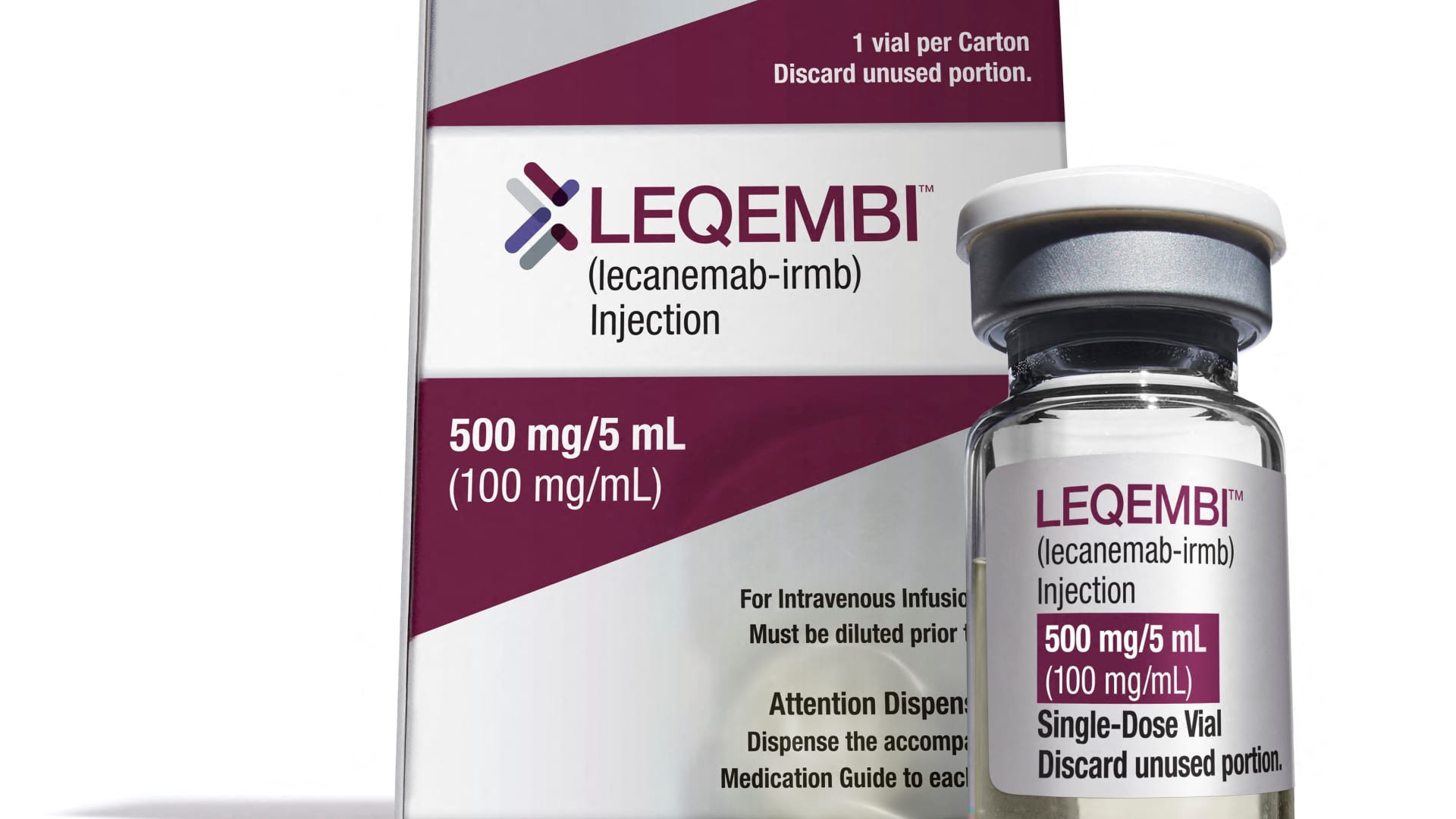
European drug regulators on Friday rejected the Alzheimer’s treatment Leqembi from Biogen and Eisai, creating another hurdle for the companies as they scramble to boost uptake of the therapy in the U.S.
The European Commission, the EU’s executive body, has a final say in Leqembi’s approval. But it almost always follows the drug regulator’s recommendations.
In a statement, Eisai said it is “extremely disappointed” by the regulator’s negative recommendation. The company added that it will seek a re-examination of the decision.
Shares of Biogen fell nearly 7% in premarket trading Friday. Japanese drugmaker Eisai’s stock was essentially flat.
The U.S. Food and Drug Administration last year approved Leqembi, which has seen a sluggish rollout due to bottlenecks related to diagnostic test requirements and regular brain scans, among other issues. Leqembi has also won regulatory approvals in other countries such as Japan, South Korea, China and Israel.
The drug was considered a breakthrough for a progressive disease that has proven notoriously hard to treat. It is a monoclonal antibody that slows the progression of the disease in patients at the early stages of it.
The European Medicines Agency’s human medicines committee recommended against granting marketing authorization for Leqembi.
In a statement, the committee said Leqembi’s effect on delaying cognitive decline does not outweigh “the risk of serious side effects associated with the medicine.” The committee specifically pointed to the “frequent occurrence” of brain swelling and bleeding in patients who received the treatment.
Those side effects are associated with drugs like Leqembi and another monoclonal antibody from Eli Lilly called Kisunla, which work by targeting and clearing a toxic plaque in the brain called amyloid, a hallmark of Alzheimer’s disease. Kisunla won approval in the U.S. earlier this month.
Leqembi and Kisunla are milestones in the treatment of Alzheimer’s after three decades of failed efforts to develop medicines that can fight the fatal disease.
Another ill-fated drug from Biogen and Eisai called Aduhelm struggled to take off in the U.S. after questions around its approval and data. In 2021, the European Medicines Agency rejected Aduhelm.
Seven million people in Europe are living with the mind-wasting disease, and that figure is expected to double by 2050, according to data from the non-profit organization Alzheimer’s Europe.







